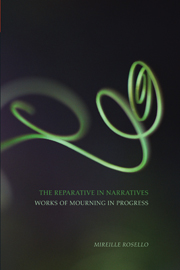Book contents
- Frontmatter
- Contents
- Acknowledgements
- Introduction: From the Debate on ‘Repentance’ to the Reparative in Memorial Narratives
- 1 Algerian Humour: ‘Jay Translating’ Words and Silences
- 2 René-Nicolas Ehni: Matricide and Deicide as Figures of Unforgivable Violence and Redemption during the Algerian War of Independence
- 3 The Truth of False Testimonies: False Brothers in Michael Haneke's Caché
- 4 Gisèle Halimi's Autobiographical and Legal Narratives: Doing to Trees what They Did to Me
- Conclusion: Repentance and Detective Fiction: Legal Powerlessness and the Power of Narratives
- Notes
- Bibliography
- Index
4 - Gisèle Halimi's Autobiographical and Legal Narratives: Doing to Trees what They Did to Me
- Frontmatter
- Contents
- Acknowledgements
- Introduction: From the Debate on ‘Repentance’ to the Reparative in Memorial Narratives
- 1 Algerian Humour: ‘Jay Translating’ Words and Silences
- 2 René-Nicolas Ehni: Matricide and Deicide as Figures of Unforgivable Violence and Redemption during the Algerian War of Independence
- 3 The Truth of False Testimonies: False Brothers in Michael Haneke's Caché
- 4 Gisèle Halimi's Autobiographical and Legal Narratives: Doing to Trees what They Did to Me
- Conclusion: Repentance and Detective Fiction: Legal Powerlessness and the Power of Narratives
- Notes
- Bibliography
- Index
Summary
Halimi grew up in the 1930s in Tunisia, in the midst of a Jewish community that she describes as poor, in a family whose members were not particularly receptive to her ambitions and feminist sense of justice. She spent her formative years in a country marked by colonialism, at a time when the party of future president Habib Bourguiba was beginning to organize against the French protectorate (Perkins, 2004, 95–105). The Second World War was about to engulf Europe and France's North African colonial territories would be involved as a reservoir of military forces, as the theatre of operations and also as an area where anti-Semitism could be exported and locally practised. In her autobiographies, Halimi describes this period as a moment when the little girl was made acutely aware of the sometimes improbable and contradictory alliances generated by the constant violence of colonialism. The German occupation of Tunisia in 1942 is a period that already ‘troubles’ (Halimi, 1988, 73) Gisèle's political and historical consciousness. On the one hand, she hears her father worry that Tunisian Jews are about to suffer the same fate as European Jews: ‘Ils vont nous mettre dans des camps de concentration, et nous porterons l'étoile jaune’ [They will put us in concentration camps and we will wear a yellow star] (1988, 7).
- Type
- Chapter
- Information
- The Reparative in NarrativesWorks of Mourning in Progress, pp. 141 - 186Publisher: Liverpool University PressPrint publication year: 2010



